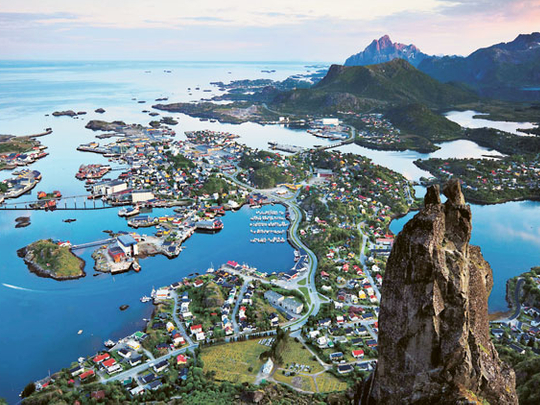
Dubai: Developed nations such as the United States rank very high on the 2011 Human Development annual ranking of achievements in health, education and income levels.
But when calculations are based on internal inequalities, some of them will not be included in the top 20 countries, showed a report released by the United Nations Development Programme (UNDP). At the same time, other countries will be upgraded and included in the top list.
"The US, New Zealand, Canada, Ireland, Liechtenstein, Germany and Sweden round out the top ten countries in the 2011 HDI [Human Development Index]," said a statement by UNDP.
"But when the index is adjusted for internal inequalities in health, education and income, some of the wealthiest nations drop out of the HDI's top 20: the US falls from No 4 to No 23, the Republic of Korea from No 15 to No 32, and Israel from No 17 to No 25," the statement, a copy of which was received by Gulf News, said.
The US and Israel drop in the report's Inequality-adjusted HDI (IHDI) mainly because of income inequality, while wide education gaps detract from the Republic of Korea's IHDI performance.
Other top national achievers rise in the IHDI due to greater relative internal equalities in health, education and income: Sweden jumps up from No 10 to No 5, Denmark climbs from No 16 to No 12, and Slovenia rises from No 21 to No 14.
National averages
The IHDI and two other composite indices — the Multidimensional Poverty Index and the Gender Inequality Index — were designed to complement the Human Development Index. The index is based on national averages in schooling, life expectancy, and per capita income.
"The Inequality-adjusted Human Development Index helps us assess better the levels of development for all segments of society, rather than for just the mythical ‘average' person," said Milorad Kovacevic, chief statistician for the Human Development Report.
"We consider health and education distribution to be just as important in this equation as income, and the data show great inequities in many countries."
The 2011 report — Sustainability and Equity: A Better Future for All — put Norway, Australia and the Netherlands at the top in the Human Development Index. At the bottom, comes the Democratic Republic of Congo, Niger and Burundi.
The UNDP report notes that "income distribution has worsened in most of the world, with Latin America remaining the most unequal region in terms of income, even though several countries including Brazil and Chile are narrowing internal income gaps. Yet in overall IHDI terms, including life expectancy and schooling, Latin America is more equitable than sub-Saharan Africa or South Asia, the report shows," according to a UNDP press statement.
The 2011 HDI covers a record 187 countries and territories, up from 169 in 2010, reflecting in part improved data availability for many small island states of the Caribbean and the Pacific. The 2011 country rankings are therefore not comparable to the 2010 Report's HDI figures, the authors note.
When it comes to gender equality, Sweden tops the list, followed by the Netherlands, Denmark and Switzerland. However, Yemen ranks lowest of the 146 followed by Chad, Niger and Mali.












